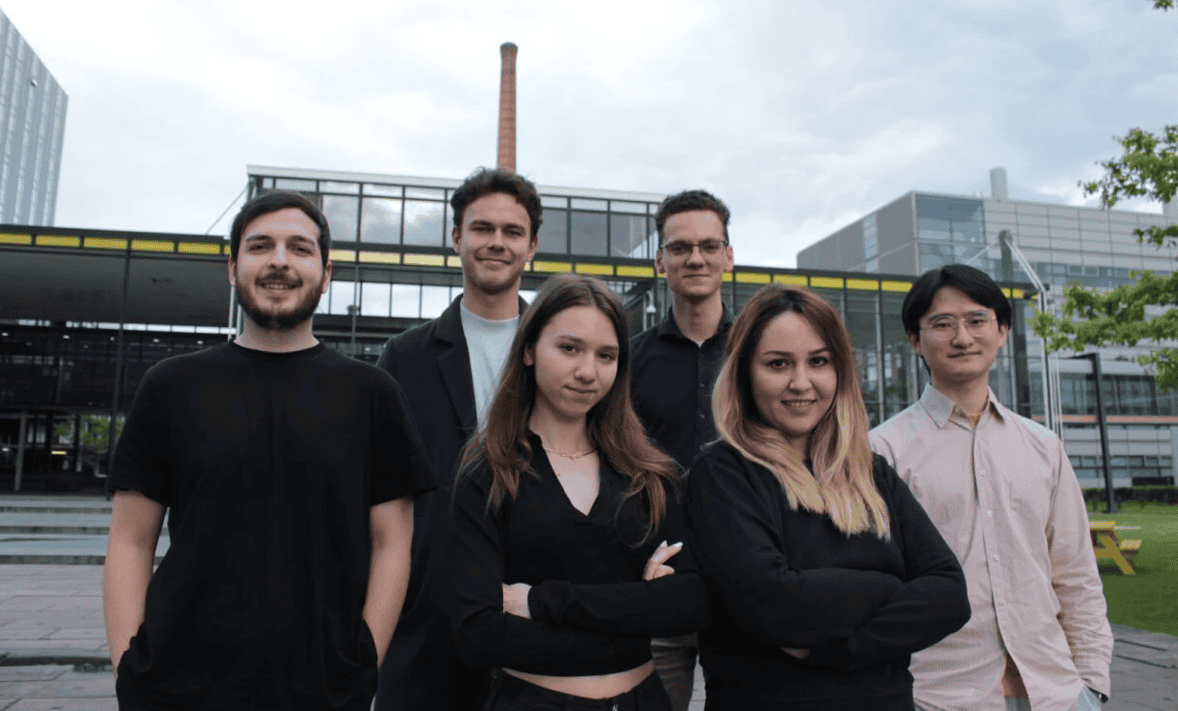
An American soldier who was released after a period of captivity by a terrorist organization is planning an attack on his own turf. This is the beginning of the first season of the TV series Homeland. But could a series like this help you prevent these kinds of attacks in the real world? Well, yes, according to Peter de Kock from Pandora Intelligence. The company combines historical information about such attacks with books, series and other stories in order to do this. Started in 2017 with an investment of one and a half million euros, the security company is now about to take the next leap. De Kock hopes to bring new investors on board at the CES trade fair being held in Las Vegas this week. It’s buzzing with rumors: is Pandora Intelligence going to be the next Dutch unicorn?
“That was set in motion when we were selected by Dutch MP for Mona Keijzer (Dutch State Secretary for Economic Affairs and Climate Policy, ed.) and Prince Constantijn to go to the CES trade fair, where we’ll be attending with the most disruptive companies from The Netherlands. Since that was announced, we have been approached by VCs (Venture Capitalists) from all quarters. We’re now interesting for the major financiers. It’s all happened so fast, we feel a bit like Alice in Wonderland. Talks are going on with six interested investors, one of whom is in Las Vegas. We would like to capitalize on that during CES.”
Read Peter de Kock’s recent column about the ransomware in Maastricht.
Do you need that new investment?
“At first we were faced with the choice of whether to grow gradually like a bike shop or to take advantage of this offer and expand very quickly internationally. We opted for the latter. Now a lot of parties are coming to us and we are constantly being phoned and asked if we’re the new Dutch unicorns.”
Why do you do this?
“I started doing this to make the world a better place. This is much slower when working with the government than with commercial parties, with good reason though. However, that sometimes causes frustration because you want to get something done. This led to Pandora Intelligence. Look at the subversion that is causing a lot of damage in society and makes people feel unsafe. We aim to make the world a safer place. When it comes to subversion and sabotage, there are so many more different approaches to counteract that. Technology isn’t causing the bottleneck.”
So why aren’t other companies managing to solve this all?
“Many other companies look at where, for example, a virus comes from. What software has been used? Are there any other exploits? We approach it in a holistic way. Take the ransomware at Maastricht University; this method says something about the motivation of the hackers. We endeavor to merge all the various information into potential scenarios. To this end, we use data from our customers, open data and information from all the stories known to us. We follow news feeds, films and forums. Anything we can use to uncover stories, we sweep the entire internet.”
“Everything in a film scenario is related to everything else. The kind of murder weapon that’s used says something about a perpetrator’s motivation. The location of an assassination also has significance. By piecing all those values together, you can completely unravel an event and figure out what you can do to counteract it.”
“What makes us unique is this narrative approach. Google, for example, classifies the world on the basis of commercial values. You can pay for extra clicks. But the world changes, values change. We want to classify the world in another way by considering symbolism and ontology.”
For a long time you worked as a documentary filmmaker, later you joined the police and now you run a start-up. Is this where both these worlds come together?
“I guess that’s how you could put it. The government is a large and (for good reason) slowly operating institution. You can’t just decide on something and carry it out. It’s bound by all sorts of rules. Whereas making a film can go pretty fast. I can think of something now and start filming that tomorrow. A start-up is definitely somewhere in between, you’re much freer than you are when working for the government and you can make decisions much faster. But I also see similarities. Because in both the police and the film world you have to create a team where you can bring out the best in each other. This also applies to a start-up. Especially in the initial phase when stress levels can be high and you can’t afford to make so many mistakes”.
Do you ever get questions that you won’t address?
“Oil companies occasionally ask us to predict where and when a pipeline will rupture. But we can’t do that, as it has has nothing to do with human behavior. We cannot anticipate natural processes. I’m sure you could calculate what rust does, but we’ll leave that up to other companies. We could look at the likelihood of someone sabotaging a pipeline in a troubled area. We can say something about that because it concerns human behavior.”
“We’ve also been approached by parties asking if it’s possible to destabilize a country politically. That is possible in theory. Just look at Brexit and Cambridge Analytica. But that’s not what we want to be involved with. We always have to ask ourselves who we’re doing something for and what the consequences are.”








